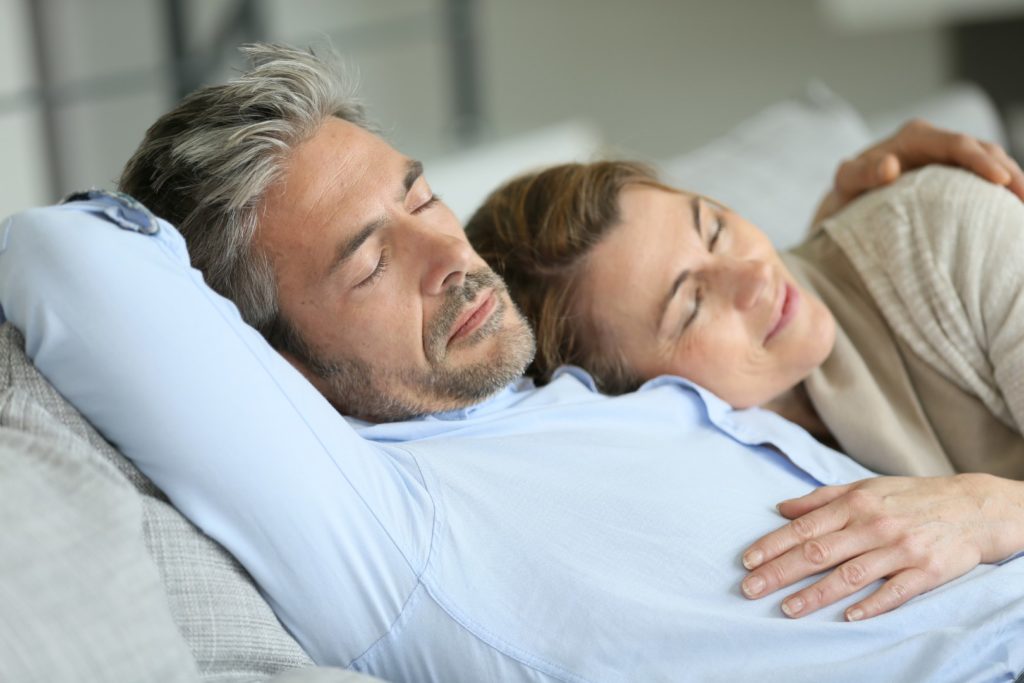
As a teenager, you could sleep through gale force winds, earthquake tremors and jackhammers. What happened to that “I can sleep anywhere at the drop of a dime”?
“Youth is wasted on the young” is an old saying probably shouted out by a retired person with lots of time on their hands but suffers from aches, pains, and sleepless nights! Although everyone’s sleep needs are different and may change with age, The National Sleep Foundation states that “It is a common misconception that sleep needs decline with age.” For the average 40-year-old, the metabolism begins to slow down, wear and tear on joints becomes an issue, as does a disruptive sleep pattern. Without adequate sleep, at any age, we will experience moodiness, irritability, some degree of memory loss, just to name a few
Studies show that people aged 65 and older have one or more complaints about their quality of sleep. Many will struggle with body pains which prevent a deep sleep, and some toss and turn due to the medications that they are prescribed. Others just get by with a couple of hours of sleep when they were used to so much more.
What are the real disruptors of sleep in older people?
1) Retiring From a Long Career

How exciting to have all this time on your hands to enjoy life to the fullest. It’s not always an easy transition, however, if you have always worked consistently over a long period of time and now find yourself free as a bird!
The first thing you do is throw out the alarm that woke you at the crack of dawn every day. You may sleep late and get to bed late into the night. This might be great for the first few weeks or so but getting back into a routine is essential to reset your internal clock and get enough hours of sleep to enjoy your day.
2) Naps
Although naps can be restorative and will offer a boost of energy when you need it, as an older person, you will be needing a nap because you just don’t get much sleep at night. This begins a cycle that will be tough to break. Keeping naps under 20 minutes would be ideal, and earlier in the day so afternoon and evening activities can tire the body and encourage sleep.
3) Illness and Inactivity

There is nothing more discouraging when you are keen to get things done but illness, injury, and pain prevent you from moving around. Certain conditions like menopause, Alzheimer’s and arthritis already disrupt sleep so when you add inactivity, the body is not burning any energy and sleeplessness sets in.
Movement is important to the body which ultimately affects the well-being of your mind. Grab a friend or a neighbour for daily walks and stretches that will encourage not only proper blood flow and oxygen intake but are great for staying focused and sharp. Joining a gym is a great alternative.
4) Psychological and Emotional Stress
As we age we deal with life issues with less patience and acceptance, and the results include stress and sleeplessness. Life changes like losing a loved one, illness, selling the family home are the most common stressors as we get older.
Constantly worrying about things that are out of our control is the new normal. This creates a cycle of distress that will literally keep us up at night. Finding an outlet to release stressors is essential for everyone. As we age, however, fears, frustrations and worries are more difficult to manage. Getting support from family and friends to help release the stresses that weigh us down and keep us from enjoying the best sleep is a great remedy. Also, joining a group for fun activities and socializing will help with stress and encourage restful sleep.
Gerry, Your Sleep Expert

